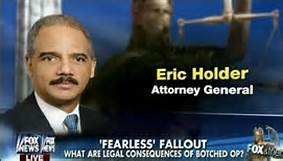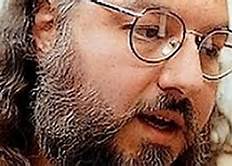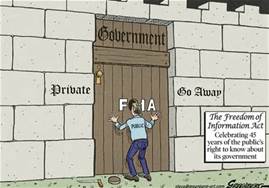While Vladimir Putin is moving to Federalize Crimea and Ukraine, the Baltic States are not getting any support from NATO as Article 5 (an attack on one is an attack on others) is but a quiet whisper. The United States has an agreement with Ukraine titled the Budapest Memorandum. This is a handshake that the United States will come to the aid of Ukraine in exchange for Ukraine giving up their nuclear weapons which they did, gave them up to Russia. But while eyes are on Russian forces at Ukraine’s border with Russia, many other Baltic States are in deep worry as to what comes next. John Kerry met with Russian Foreign Minister Lavrov for four hours on March 31 in Paris to work out the next moves of each while Kerry required Russia to move their troops. Russia has refused, yet there was some troop movement where some take this as a sign to calm tensions. It needs to be known however, such is not the case.
Russia is performing military drills at the border of Finland.
Finland Frets as Russia Launches Military Drills on Its Doorstep
According to Dr. Jonathan Eyal, international director at London’s Royal United Services Institute think tank, there is “no question” that these exercises show that Russia is testing its power in the region, which was reshaped by the fall of the Soviet Union in 1991.
“In pure capability terms, the Russians are preparing an operation,” Eyal said. “The question is: Is there an actual military threat? I do not think there will be.”
Eyal said that while Russia’s annexation of Crimea has put a spotlight on its foreign policy, tension with Finland and Sweden is not new. This was shown as recently as last year when Russian jets flew toward Swedish airspace, causing Stockholm to scramble its air force, he said.
But he said that Scandinavia and the Baltic states have sensed renewed danger in recent days because “Putin is an opportunist, and if the opportunity arises he will pick up on it.”
Andrew Kutchins, a senior fellow at the Center for Strategic and International Studies, said the proximity of the drills had made the alarm most palpable in Finland.
“The people of Helsinki are nervous,” he said. “What Putin is doing is sending shock waves through Europe.” However, Kutchins added that the likelihood of immediate military action appeared “very far-fetched.”
This anxiety was heightened Sunday after one of Putin’s closest former advisers told the Swedish newspaper Svenska Dagbladet that the Kremlin would seek “historical justice” by reclaiming Finland and ex-Soviet countries as part of an enlarged Russian Federation.
“Putin’s view is that he protects what belongs to him and his predecessors,” wrote Andrei Illarionov, according to a translation by the Moscow Times.
“Parts of Georgia, Ukraine, Belarus, the Baltic states and Finland are states where Putin claims to have ownership,” said Illarionov, who is now a senior fellow at the Washington, D.C.,-based Cato Institute.
Illarionov, who was chief economic adviser to Putin until 2005 and is described by the Moscow Times as an outspoken Kremlin critic, said Putin could argue the Communist revolution of 1917 was a “treason against national interests.”
“It is not on Putin’s agenda today or tomorrow,” Illarionov added. “But if Putin is not stopped, the issue will be brought sooner or later.”
“Finland isn’t Ukraine”
The reason experts think Finland is more secure than Ukraine is that although neither are members of NATO, the former is more protected by its European Union membership.
“Finland isn’t Ukraine,” said Oliver Bullough, commentator and author of “Last Man In Russia.” “It might not be a NATO member but it is in the European Union and you can bet that if Russia were to start invading members of the E.U., the E.U. would have something to say about it.”
Bullough said the Russians had a “grudging respect” for the Finns because of the way they resisted Moscow’s Red Army during World War II. Apart from Britain and the Soviet Union, Finland was the only European nation involved in the war to avert a foreign occupation.
Research consultant Kathleen McInnis pointed out that Finland is connected to NATO in that it has taken part in NATO-led actions, including Kosovo and Afghanistan.
“Recently there has been discussion in Finland about joining NATO, but opinion remains in favor of a defense partnership with Sweden,” said McInnis, who is based at the London-based think tank Chatham House.
Add to that Finland’s recent agreement to start discussions with Sweden over a defense partnership, and an incursion by Moscow looks less likely.
Perhaps the key difference between Finland and Ukraine is that Putin does not have a tangible excuse with which to exercise the Kremlin’s influence abroad.
In the swift annexation of Crimea, he spoke of the need to protect ethnic Russians living in the peninsula from what he called the illegitimate fascist regime in Kiev.
But Eyal said that it is wrong to assume Russia’s only option is a brute-force invasion.
“Russia could put pressure on Scandinavia not to come to the aid of the three Baltic states [Estonia, Latvia and Lithuania], which do have Russian ethnic minorities,” he said. “Or they could warn in advance for Finland and Sweden not to join NATO. It’s a key foreign policy for Russia to prevent NATO’s enlargement.”
Albina Kovalyova reported from Moscow. Alexander Smith and Alastair Jamieson reported from London.
So what is being said about Finland?
One of Russian President Vladimir Putin’s closest ex-advisers has claimed that the ex-KGB agent ultimately wants to reclaim Finland for Russia.
Andrej Illiaronov, Putin’s economic adviser between 2000 and 2005 and now senior member of the Cato Institute think tank, said that “parts of Georgia, Ukraine, Belarus, the Baltic States and Finland are states where Putin claims to have ownership.”
“Putin’s view is that he protects what belongs to him and his predecessors,” he said.
When asked if Putin wishes to return to the Russia of the last tsar, Nicholas II, Illiaronov said: “Yes, if it becomes possible.”
Illiaronov admits that Finland is not Putin’s primary concern at present but, if not stopped in other areas of Eastern Europe, the issue will one day arise. Russian troops are currently massing on the eastern border of Ukraine, following Russia’s recent annexation of Crimea.
“Putin said several times that the Bolsheviks and Communists made big mistakes. He could well say that the Bolsheviks in 1917 committed treason against Russian national interests by providing Finland’s independence,” Illiaronov told a Swedish news website.
He believes that Putin is not planning to invade Ukraine for territorial gain but rather “the goal is a pro-Russian puppet government in Kiev.”
“Six years ago Putin conquered Abkhazia and South Ossetia from Georgia. The west let him do it with impunity, and now he has got Crimea,” he continued.
“Now, eastern and southern Ukraine is destablised so that the self-defence forces can take power there. If the situation allows, it may be a military invasion.”
Finland was a part of the Russian Empire for 108 years but broke away in 1917 at the end of the first world war.
The Scandinavian nation was attacked at the beginning of the second world war by the Soviet Union, with Finland fighting the winter war and the continuation war in resistance and losing 10% of its pre-war territory.
Finland is not a member of Nato, so any invasion of its land would not constitute an attack against all members under Article 5 of Nato’s founding Washington Treaty.










